“What causes homophobia – the dread of being in close quarters with homosexuals – and in the case of homosexuals themselves, self-loathing?” This was a question asked by the New York psychologist, Dr George Weinberg, in his 1972 book, “Society and the Healthy Homosexual”. It is a work I have just re-read and that I had read for the first time in my late teens: undoubtedly one of the most helpful and insightful books I encountered during my own journey of coming to terms with being gay.
Weinberg was the pro-gay psychologist who coined the term “homophobia” – widely used in his book, and conceived by him in 1967, when he realised that, far from homosexuality being a psychological illness, it was those who felt an irrational aversion to lesbian and gay people, and who felt the need to denounce and discriminate against us, who were suffering from a psychopathology.
Furthermore, Weinberg identified that we lesbian and gay people ourselves were very prone to internalising the homophobia of our societies, giving rise to destructive self-contempt and self-hatred that would often lead to attempts at compensation, diversion, and self-sabotage. His mission was to encourage self-acceptance among lesbian and gay people and a positive attitude towards our sexual orientation in the service of aspiring to live a happy and fulfilled life – something to which neither homosexuality nor heterosexuality was an automatic barrier per se.
The particular problems experienced by lesbian and gay people, he asserted, were caused by a combination of culturally-inherited environmental homophobia, and the internalisation of that homophobia; and Weinberg’s endeavour was to help free society from both forms.
On re-reading the book, it quickly became clear that I had forgotten just how shockingly anti-gay our society was at the time Weinberg wrote it. Homophobia permeated the psychological, psychiatric, counselling, and psychotherapeutic professions: “Most psychoanalytic training institutes, like most training programs in psychology, would refuse a declared homosexual as a trainee.”
He documents the appallingly ignorant and prejudiced attitudes prevalent in these professions towards lesbian and gay people, including the use of aversion therapy – so-called “therapists” administering dozens of nauseating injections, or electric shocks, in an attempt to make their patients desist from enjoying homoerotic thoughts and feelings. Weinberg states, with prescience: “If sometime in the future, homosexuality becomes acceptable socially, the behavioural therapists will accept it as no longer being maladaptive. Meanwhile, these therapists are, as a group, punishing homosexuals and not considering their case.”
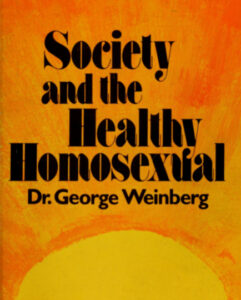
Dr George Weinberg’s 1972 book “Society and the Healthy Homosexual”
What spurred me to re-read Weinberg’s book was the very strong suspicion that his identification and analysis of “internalised homophobia” could provide the key to understanding what might otherwise be an impenetrable mystery: the fact that, at the very time when the lesbian and gay rights movement had achieved so much, and when we had such good grounds for optimism about the future, we allowed our movement to be hijacked by a completely different, unrelated, and indeed hostile ideology. We allowed it to be rebranded as a movement that was overwhelmingly heterosexual.
We have also seen many gay and lesbian people actively championing this takeover, attacking those who object to it, and trying to promote gender ideology practices that are seriously harming young gay and lesbian people, with no concern at all for the suffering they are causing. While gender ideologues falsify and revise lesbian and gay history, many same-sex oriented people play along and reinforce this misrepresentation of our gay past.
A movement that used to fight for lesbian and gay rights, and that encouraged young lesbian and gay people to accept their sexual orientation and learn to love themselves, has succumbed to the self-destruction of low self-esteem.
To me, all this has the distinct flavour of homophobic self-sabotage. Of people giving away their political and social movement to others – from self-loathing, guilt, and a feeling of not deserving their own, dedicated space and ideology. A movement that used to fight for lesbian and gay rights, and that encouraged young lesbian and gay people to accept their sexual orientation and learn to love themselves, has succumbed to the self-destruction of low self-esteem.
This was once a brave and principled movement, and it should be encouraging young lesbian and gay people not to use transgender identification as a fake short-cut to putative heterosexuality. Claiming to be a transgender boy when you are a lesbian girl is, for many vulnerable and insecure young people caught up in Internet grooming and social contagion, too tempting a springboard from homophobic disparagement and marginalisation to high and powerful transgender peer status.
The gay activists of the 1980s would never have allowed this hijacking of our movement, which has been precipitated by large conditional grants to former gay rights charities in the West from wealthy organisations promoting transgender ideology. This is the new ruling class, buttressed by Big Tech, that has even succeeded in duping large sections of the Left, who know they, or their projects, risk being ruined if they dare to speak out against the new, wealthy, governing elite.
In the 1980s, in our struggles for self-acceptance and for social justice, we were very much aware – thanks in large part to George Weinberg – of how our own internalised homophobia, our own socialised self-contempt, always risked sabotaging our personal development, our opportunities, our romantic relationships, and our happiness. It seems to me that internalised homophobia is now back with a vengeance.
Recent generations of lesbian and gay people have lost sight of how easy it is to assimilate other people’s negative evaluations, and the kind of self-acceptance many demonstrate often appears shallow and sham. Should we really be so surprised that the intense and pervasive homophobia of our western societies, which has been culturally baked-in by religious doctrine over hundreds of years, might still have a toxic grip on the psyches of lesbian and gay people in the modern age, despite all the improvements and reforms? It was only fifty years ago that Weinberg wrote the following description of internalised homophobia:
“The person who from early life has loathed himself for homosexual urges arrives at this attitude by a process exactly like the one occurring in heterosexuals who hold the prejudice against homosexuals. He votes against himself in everyday decisions—just as others vote against him. For instance, he may ridicule himself and other homosexuals, as prejudiced heterosexuals do. He desists from sexual contacts, as they would want him to. He reduces his career aspirations, as the heterosexuals would reduce them for him if they knew he was homosexual. He describes himself as sick, as heterosexuals would, and he direfully announces that all homosexual relationships must come to an unsavory end, in the very language used by heterosexuals who know nothing of such matters.”
Nietzsche’s insight that “Whoever despises himself nonetheless respects himself as one who despises,” should provide us with a clue as to how the public expression of internalised homophobia can make a self-oppressed, self-disparaging individual feel temporarily better about himself. The self-loathing and secretly homosexual religious adherent who publicly condemns homosexuality will not only hope that it distracts others from suspecting the truth about his own sexual orientation; he will also get a virtue buzz, an ephemeral respite from his feelings of guilt and shame, as a person who morally condemns the illicit thoughts and feelings to which he himself is repeatedly drawn.
People who were same-sex oriented were no longer permitted to socialise or politically organise as a discrete group, based on the sole characteristic they shared in common, without being harassed, defamed, lied about, and called “bigots” and “transphobes”.
For all the greater openness and acceptance of lesbian and gay people in the modern age, the willingness of so many people to hand over our movement and our political rights to others who mean us harm, should make us think hard about how genuine and how deep the level of self-acceptance really is in today’s lesbian and gay community.
The lesbian and gay rights movement has now been rebranded as the “LGBT+ movement”, and as I demonstrated in a recent article for Lesbian and Gay News, the addition of the “+” means that over 80% of those now populating this hypothetical movement are heterosexual. Even before the “+” was added, our movement had already been captured by the transgender lobby, becoming LGBT (where T stood for “transgender”, not “transsexual” – the latter also having experienced their cause being hijacked).
People who were same-sex oriented were no longer permitted to socialise or politically organise as a discrete group, based on the sole characteristic they shared in common, without being harassed, defamed, lied about, and called “bigots” and “transphobes”. Only six years ago, our right to have our own distinct group was unchallenged. What other minority group has been forced to team with a completely unrelated group under threat of vilification?
The same thing has happened to women, of course – a majority of the population, rather than a minority – while those lesbian and gay people who are aligned with the LGBT+ lobby are actively supporting the erasure of women’s sex-based rights and protections.
What other minority group, following massive campaigns by the charities that once represented them, has been forced to accept a redefinition of their group identity in a way that now included over 80% of the general population?
The colonisers of the lesbian and gay movement have now even taken it upon themselves to redefine “homosexuality” itself, peddling the false and blatantly homophobic claim that it means “same-gender attraction” and not “same-sex attraction”. This is an attempt to redefine homosexuality out of existence. A number of lesbian and gay people are endorsing this and pretending that they are heterosexually attracted to people on the basis of their self-defined “gender”. This is not the behaviour of someone who is proud to be gay or lesbian and determined to defend the right to be homosexual.
What other minority group would allow itself to be colonised by a completely different and unrelated group that then redefined the primary group out of existence? And how many members of that colonised group would be aggressively championing the colonisers? What is behind this mentality?
Hundreds – thousands – of years of systemic homophobia do not disappear from a culture in only five decades. The fact that so many lesbian and gay people have colluded with the colonisation of their movement, and continue to do so, is evidence of the degree of self-sabotage and self-deprecating compensation that is embedded in the psyches of Nietzsche’s self-despising virtue-signallers.
My own observations and experiences of the gay male scene and community over many years confirm the barely-hidden self-rejection of so many people who do not seem to have made good progress on their journey of gay self-acceptance. Often, even the in-your-face coming-out of many gay people, and their assertive demand for what they see as inalienable “gay rights”, are behaviours that seem to fall far short of being assertions of mature self-acceptance and self-respect. They frequently have the character of seeking out, and attempting to severely punish, minor infractions, or minor deviations from the modern gay rights orthodoxy. An endless and aggressive demand for external validation fills the void where the internal validation should be, with egos too damaged, fragile, and angry to accommodate the paradigm of forgiveness, or even of proportionate response.
In this world of redefined language, where gay rights become LGBT+ (and therefore overwhelmingly heterosexual) rights, where homosexuality must contain the profession of an equal preference for heterosexuality, and where genuine, well-meaning disagreement on an issue becomes misrepresented as “hate” and “bigotry”, it is perhaps unsurprising that even George Weinberg’s “homophobia” is now being redefined to mean “anything that questions the current LGBT+ orthodoxy on gay rights”.
The has the result that I am accused of “homophobia” for campaigning against all forms of surrogacy for straight and gay people alike, given that my campaign would prevent some (wealthy) gay men and gay couples from producing children via surrogacy, regardless of the fact that surrogacy is very harmful to, and exploitative of, women and children. Gay “rights” are increasingly being asserted as having such an elevated status that their satisfaction justifies the infliction of very serious injustices on others. While the LGBT+ lobby tries to enforce fake “gay rights” that cause serious harm to others, it is at the same time working hard to undermine our real gay rights in the service of promoting and centring homophobic gender ideology.
The term “homophobia” is also routinely used these days to automatically describe anyone who does not support gay marriage, and who instead prefers the idea of civil partnerships for lesbian and gay people. Even when, like the former Liberal Democrat MP, Sarah Teather – a Catholic – they have a strong track record of supporting gay rights but have religious, political, or philosophical reasons why they could not support gay marriage. Sarah Teather was vilified for “homophobia” when she voted against gay marriage, yet her record of support for gay rights demonstrated that she was very far indeed from having an irrational fear of, and aversion to, homosexuals and homosexuality – which is what “homophobia” actually means.
What greater degree of homophobic self-sabotage is there than for a lesbian or gay young person to declare he or she is really transgender, and therefore heterosexual? All cheered on by LGBT+ lobby-allied lesbian and gay adults who should know better than to betray the very young people they should be protecting.
The self-image fragility of new generations of LGBT+ lesbian and gay activists expresses itself in an obsession with external validation and doctrinal compliance, and this has replaced the kind of genuine and profound self-acceptance that provides enough psychological stability to ignore or shrug off some minor comment that they don’t like or don’t agree with. The grievance radars are turned up to full whack, and every blip on the screen is triggering and destabilising. Everything is an incoming “hate” missile, launched by an “enemy” who deserves ruthless retaliation.
The prevalence of psychological problems and dysfunctional social behaviour among gay men in particular deserves to be regarded as a matter of serious concern. My impression of this community over many years – a community to which I belong – is of one that has higher rates of anxiety and depressive disorders, greater consumption of alcohol and use of nicotine, greater use of recreational drugs, and a lot of what seems to be addictive sexual behaviour and risky sexual behaviour.
In addition to this is the difficulty many gay men have in relating to one another on the social, sexual and romantic level, in many cases tending to a hypersexualisation and objectification of others that grants form (especially youthful looks, physical beauty, and fashion) an overwhelming priority over substance (friendship, loyalty, quality of communication, interests and values in common). This skewing of the value system in social interactions has created a concerning level of alienation, and it has often encouraged a degree of brutality towards, and depersonalisation of, the other, that must be very psychologically damaging both to those on the receiving end, and to those perpetrating it.
I am quite sure that many young lesbians experience their own forms of homophobic self-sabotage resulting from a lack of self-acceptance, in a culture where three-quarters of the children referred to gender clinics are female, and where the Bayswater Support Group reported that, of the 400 families with a transgender-identified young person that the group supports, over half of these young people had identified as lesbian or gay before coming into contact with transgender ideology.
What greater degree of homophobic self-sabotage is there than for a lesbian or gay young person to declare he or she is really transgender, and therefore heterosexual? All cheered on by LGBT+ lobby-allied lesbian and gay adults who should know better than to betray the very young people they should be protecting.
Was it our own internalised homophobia that allowed the gender lobby to hijack our gay rights movement? As though that’s all we are worth? Weinberg’s identification and analysis of systemic cultural homophobia, and of the harm it also does when it becomes internalised homophobia among lesbian and gay people, provides, in my view, the most compelling explanation for how the lesbian and gay rights movement has allowed itself to be hijacked, marginalised, and redefined out of existence.
Internalised homophobia explains in large part why so many lesbian and gay people have been willing to surrender what they, and their predecessors, had fought so hard to achieve, over several decades. It explains why so many lesbian and gay people who ally with the LGBT+ lobby treat themselves and their own rights with contempt in the service of promoting and centring an irrational and homophobic ideology that has nothing to do with sexual orientation.
All this came about at the very time when things seemed to be going so well for the lesbian and gay community. If, deep down, you regard yourself with contempt, and you can’t cope with the guilt of getting something good that you feel you don’t deserve, then that is the very time when your impulse to self-sabotage, and your craving for a virtue-fix, will be at their most compelling.
In his final paragraph, Weinberg writes: “In the fight against the persistence of homophobia our best hope is something Jung called ‘the antiseptic power of consciousness’.” The lesbian and gay people of today who align themselves with the LGBT+ lobby need Weinberg’s reminder of how insidious internalised homophobia is, and of how harmful it is to well-being.
We do not need to sabotage our rights and our opportunities for happiness, and we must not do so. We deserve to have good things happen to us. We are no less deserving of our rights than any other minority group, including our right to meet and organise independently and separately on the basis of our sole shared characteristic, and to defend ourselves and our community against serious attacks funded and promoted by a pernicious new ruling class. Let us continue to raise Jung’s “antiseptic consciousness” among our lesbian and gay community and work at turning this deplorable situation around.
Gary Powell is a gay man and has been active in gay politics since 1980. He is the Research Fellow for Sexual Orientation and Gender Identity at the Bow Group and the European Special Consultant to the Center for Bioethics and Culture.



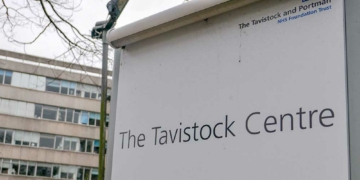



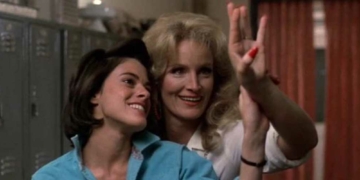








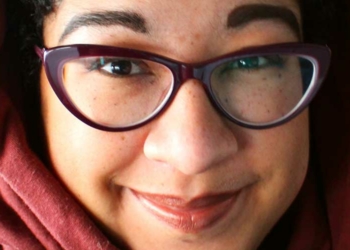

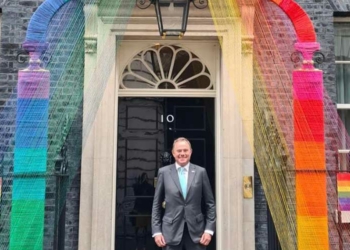





Comments
No comments yet, be the first to leave a comment.